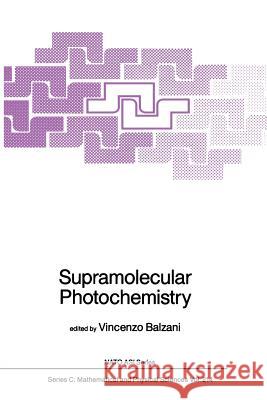Supramolecular Photochemistry » książka
Supramolecular Photochemistry
ISBN-13: 9789401082655 / Angielski / Miękka / 2011 / 469 str.
The intellectual and utilitarian opportunities that lie at the frontiers of chemistry have been recently emphasized by the Pimentel Report. Such report recommends that in the field of chemical research priority should be given to "understanding chemical reactivity" and proposes initiatives aimed at the clarification of factors that control the rates of reaction and the development of new synthetic pathways for chemical change. In the broad field of chemical reactivity, a discipline that has grown with an extraordinary rate is photochemistry. Since the knowledge of the photochemical properties at the molecular level has made a substantial progress in the last few years, there is currently a trend to study more and more complex photochemical systems. In particular, an emerging and rapidly expanding branch of photochemistry is that concerning studies of assemblies of molecular components properly combined so as to obtain light-induced functions (supramolecular photochemistry). Although much of the current work in supramolecular photochemistry is fundamental in nature, it is clear that progress in this field will be most rewarding for several applications concerning the interaction of light with matter. In particular, it will allow us to pursue research aimed at the photochemical conversion of solar energy by means of artificial systems and to make progress towards futuristic branches of science called "photonics" (photo-generated electron migration processes on a molecular basis) and "chemionics" (design of components, circuitry, and information treatment at the molecular level).











